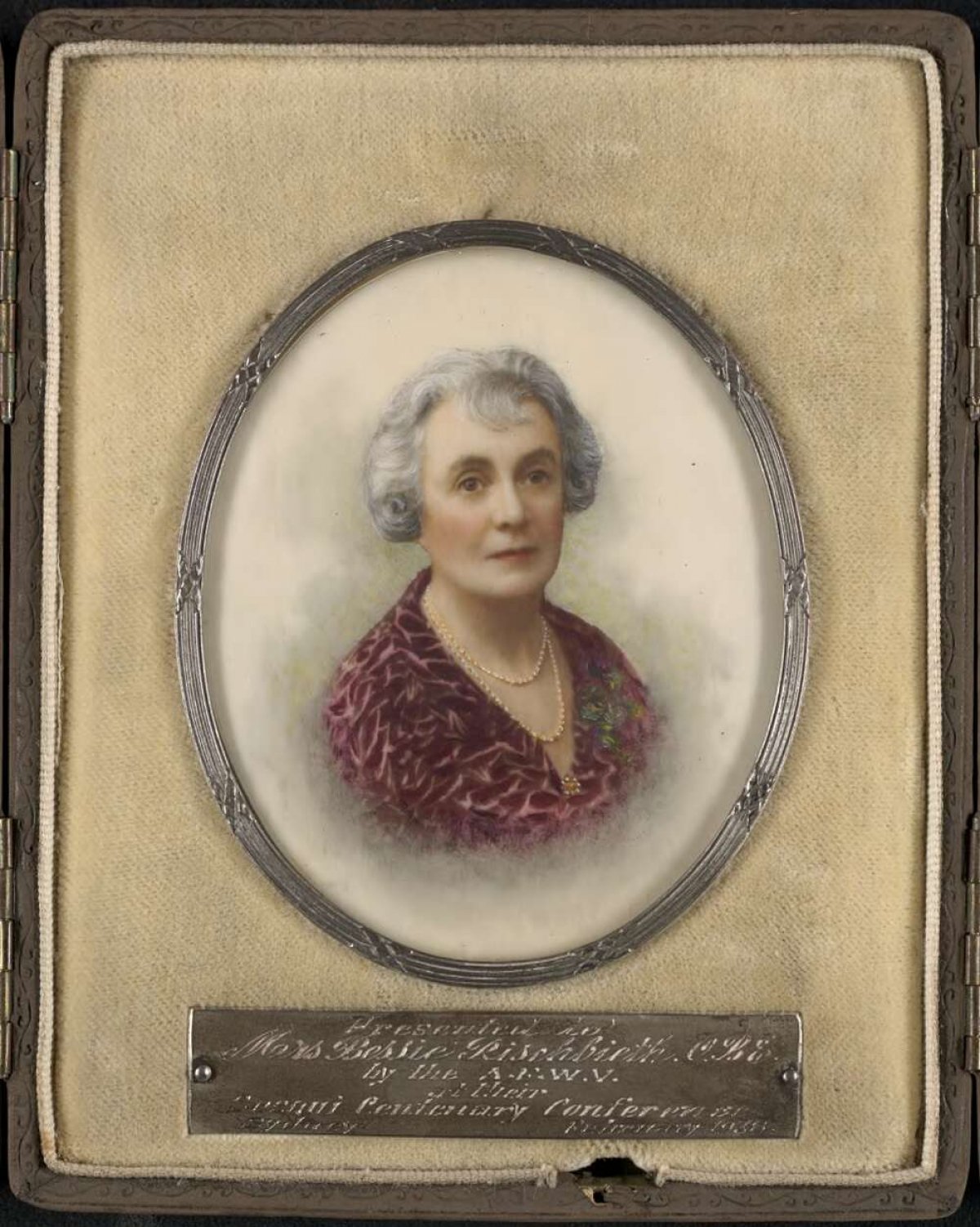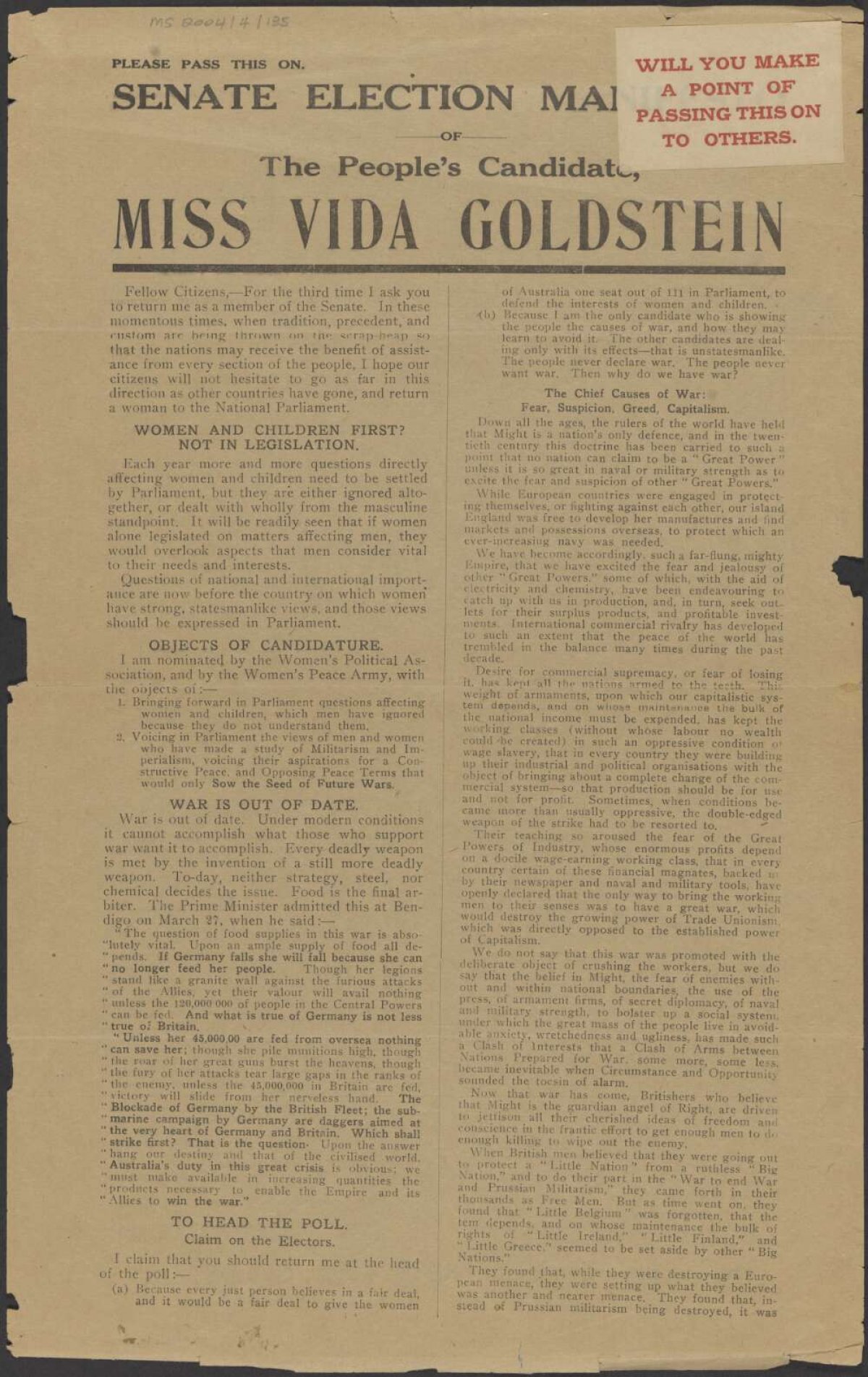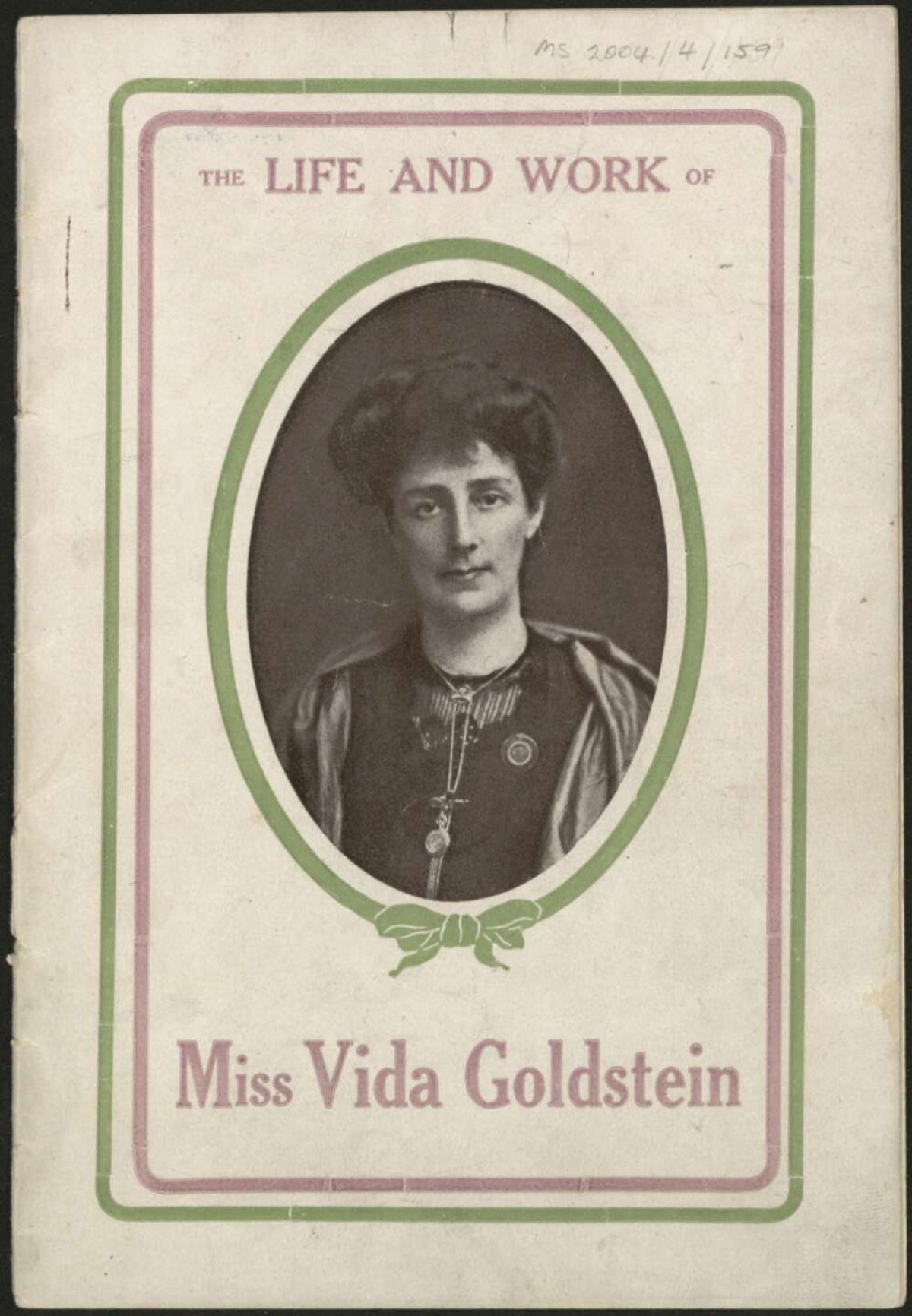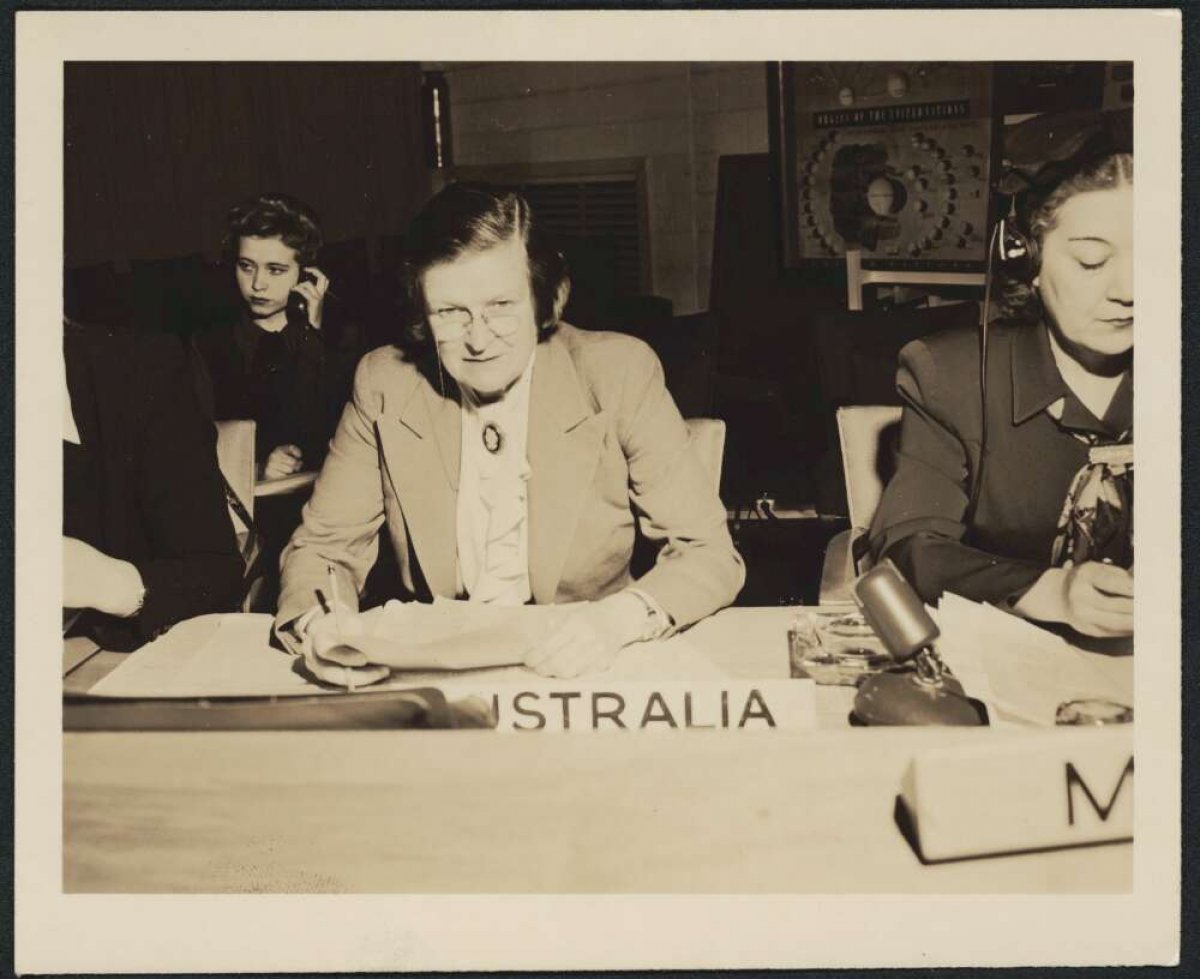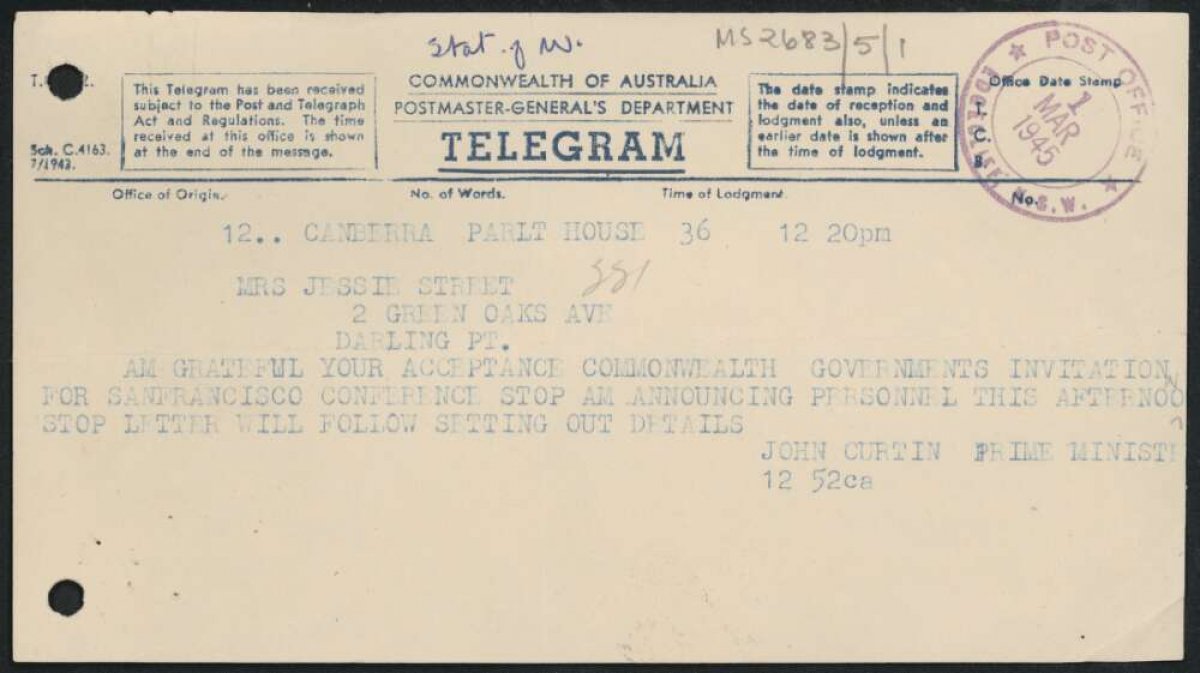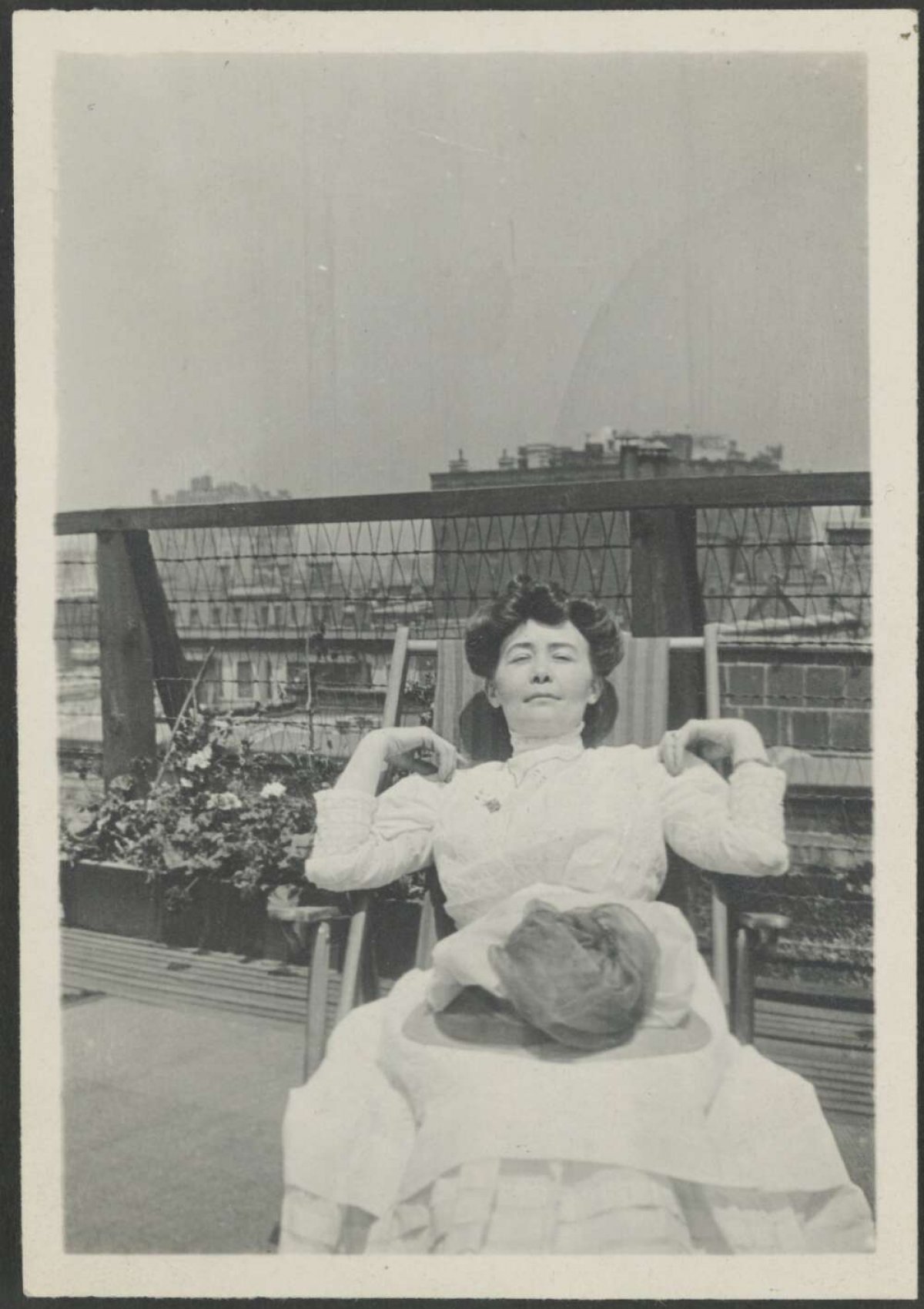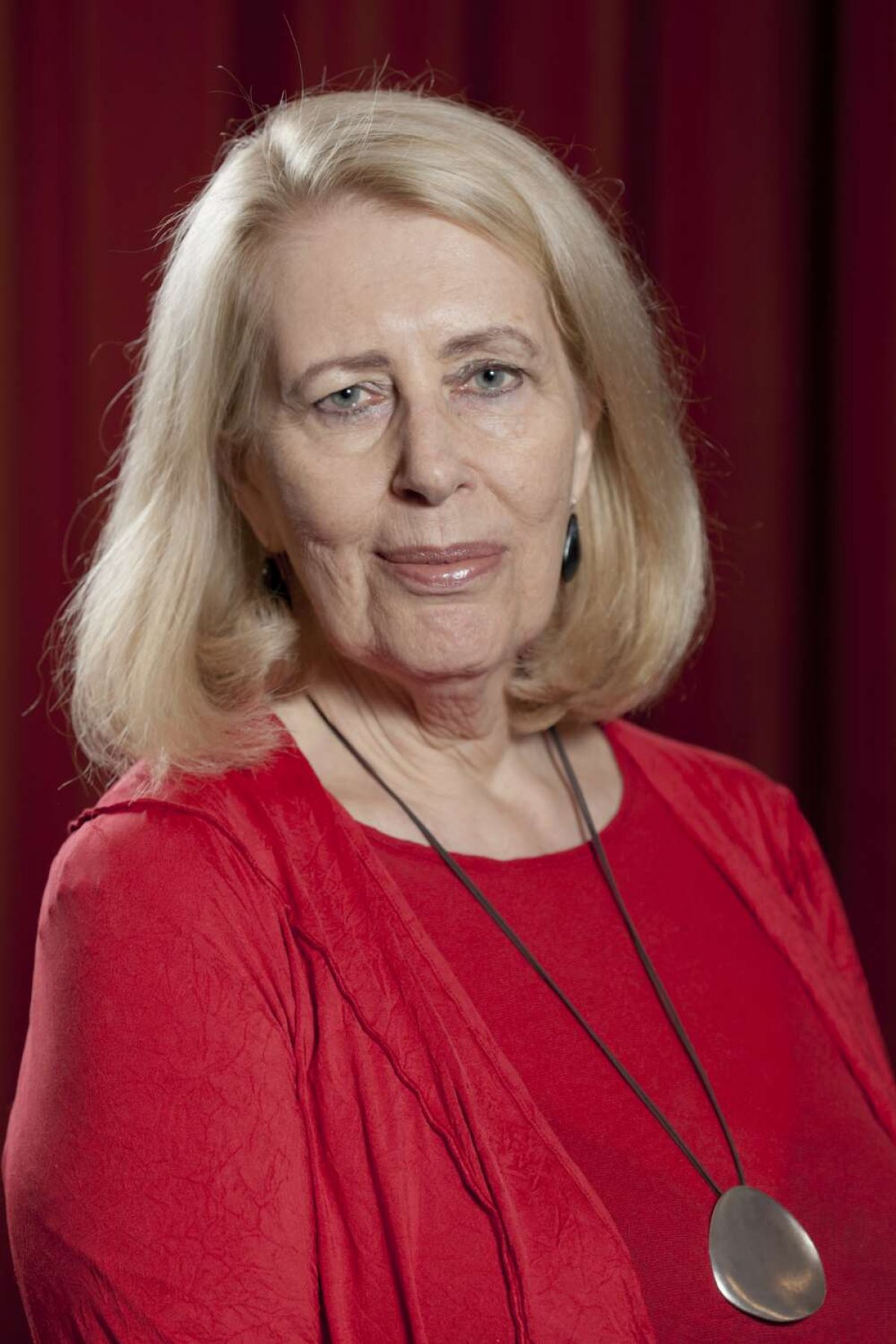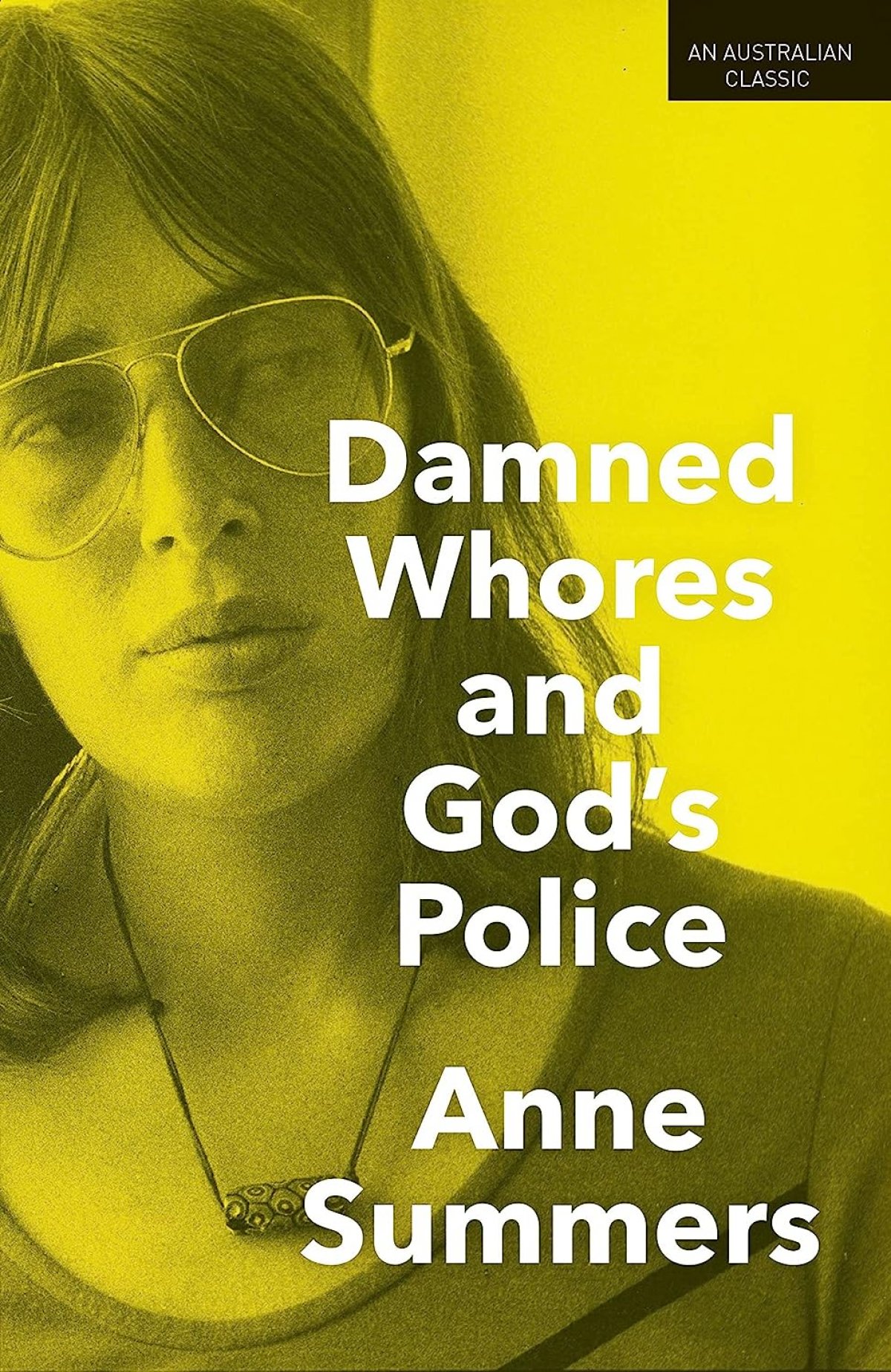A great many women have marched, signed petitions, been imprisoned or quietly endured great personal struggle in the absence of equal gender rights. There have also been several key identities in the Australian feminist movement whose impact was felt globally as the tide began to change. Some of them were front and centre at the birth of the era of women’s suffrage, and their contributions have been catalysts for change, discussion and inspiration in later years. Here are just five women who have made particularly valuable contributions to the progress of women’s rights.
Bessie Rischbieth
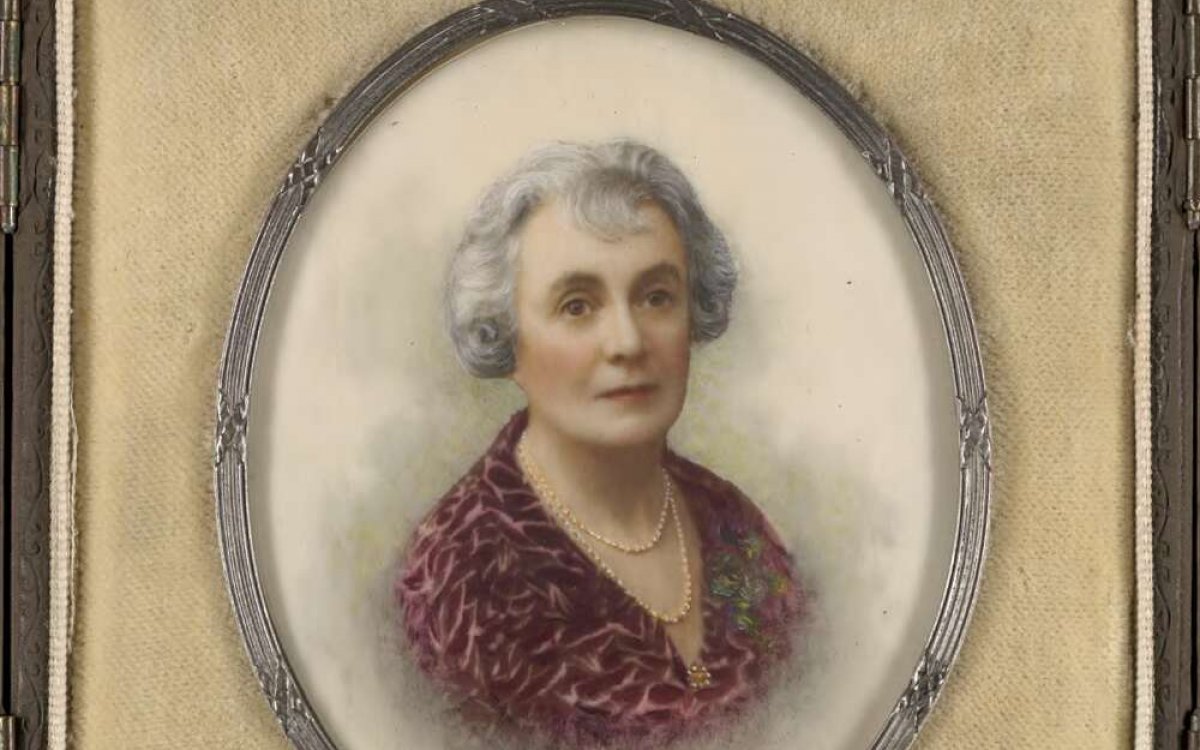
(1938). [Portrait of Bessie Rischbieth] [picture]. http://nla.gov.au/nla.obj-135819982
Bessie Rischbieth was an active feminist, prolific writer of articles, and campaigner for women’s and Indigenous people’s rights. Rischbieth was an Australian witness to the woman’s suffrage movement in the United Kingdom, and her collection in the National Library spans half a century of the women’s movement in both the United Kingdom and Australia, comprising correspondence, biographies, photos and realia.
Rischbieth was a founder, active member and leader of several organisations, including the Australian Federation of Women's Societies (later the Australian Federation of Women Voters). She wrote many articles as Editor of The Dawn, the monthly journal of the Women’s Service Guilds. While an active campaigner, Rischbieth believed in the less-political pursuit of feminism, an approach that was falling out of favour with many active feminists. In later life, Rischbeith clashed with Jessie Street, to whom she had been a mentor, over Street’s more militant approach. Their public dispute was covered by the media.
Despite never standing for political office, Rischbeith used her position within the women’s rights movement, and her connections to those with influence, to back Edith Cowan’s election to parliament. Cowan became the first woman in Australia to hold public office in 1921. Rischbieth was also a passionate artist and conservationist—at the age of 89, she protested the filling-in of the Swan River in Perth by wading into the water in front of bulldozers.
Vida Goldstein
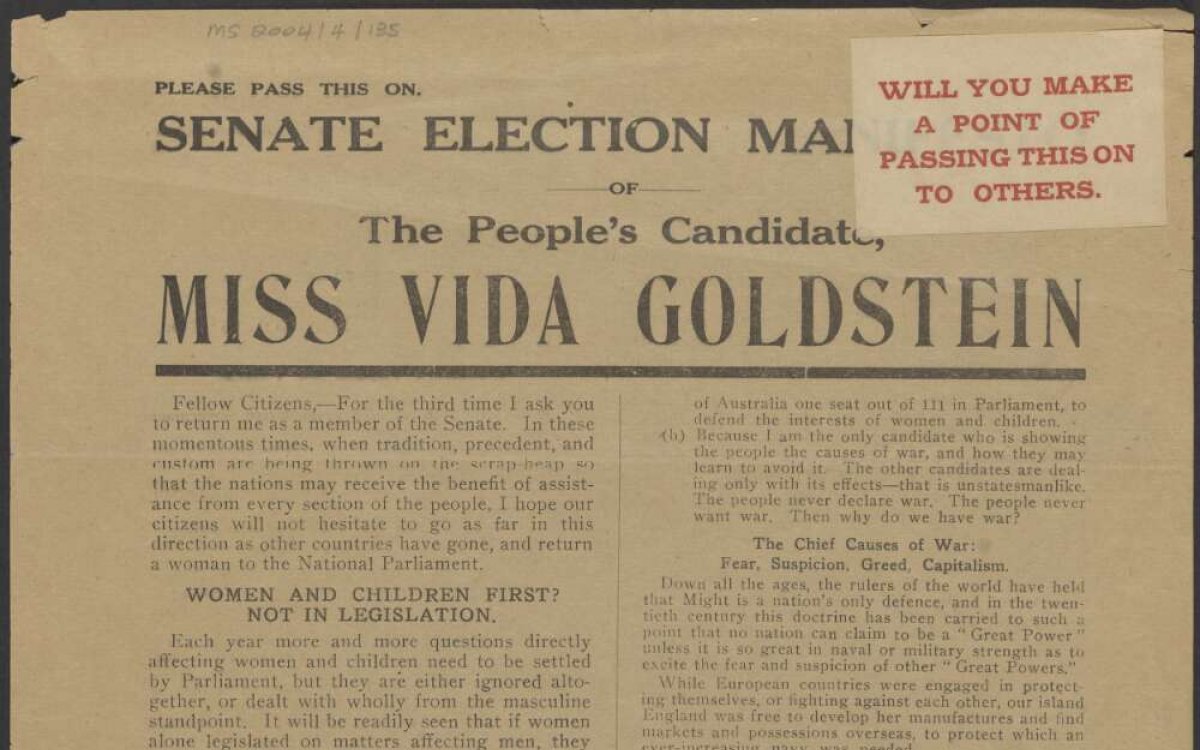
Rischbieth, Bessie Mabel. (1900). Papers and objects of Bessie Rischbieth, Series 4/File 6/Pamphlets and articles by Vida Goldstein and copies of "The Woman Voter", http://nla.gov.au/nla.obj-410761814
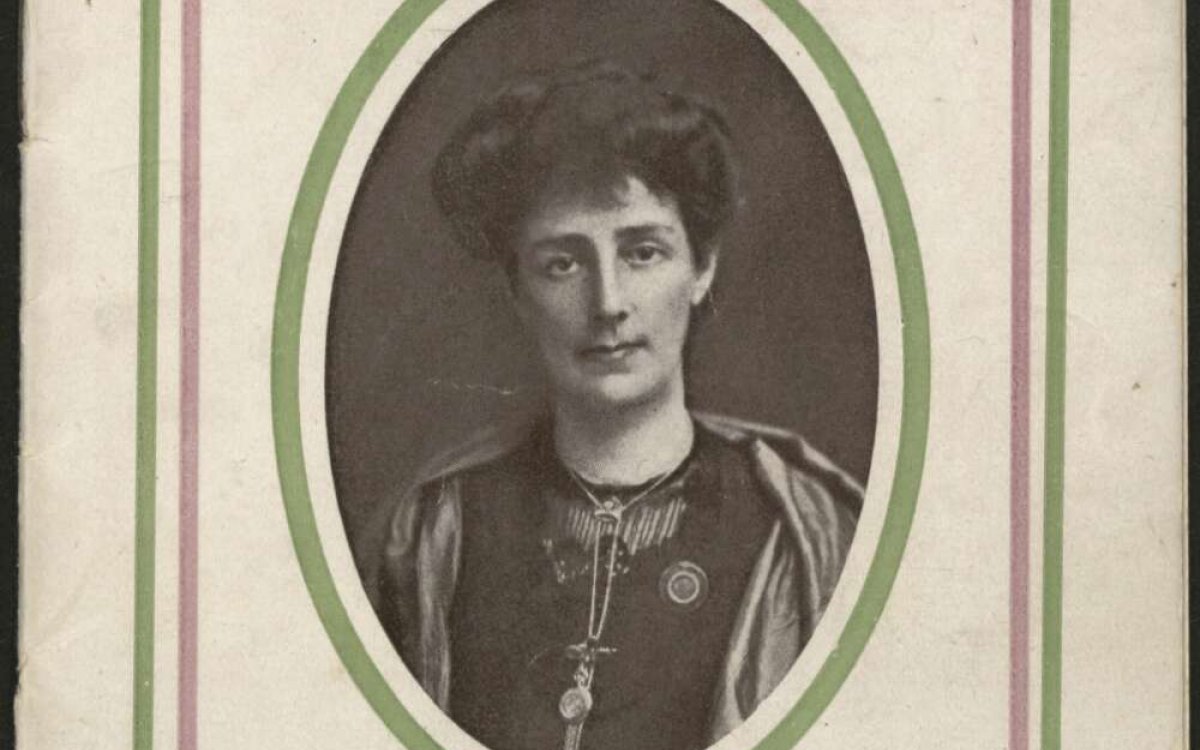
Rischbieth, Bessie Mabel. (1900). Papers and objects of Bessie Rischbieth, Series 4/File 8/Pamphlets and publications relating to Vida Goldstein, http://nla.gov.au/nla.obj-432736053
Vida Goldstein was an Australian suffragist and feminist who lobbied hard for changes to laws on property ownership and pay for women. She was one of the first woman to stand for election in the Commonwealth. She tried stood for election five times but, despite her increasing popularity, was never elected to office. Goldstein did not align herself with any established party, running instead as an independent.
Goldstein’s parents had a great influence on her life’s work. She came from a well-to-do family in Melbourne; her father was an anti-suffragist and her mother a suffragist. At age 21, she helped her mother collect signatures door-to-door for the Women’s Suffrage Petition (also known as the Monster Petition)—a 260 metre-long petition of around 30,000 signatures calling for the female vote in Victoria. Goldstein was well read and well spoken—skills that served her well as she became the clear leader of the women’s movement in Victoria around the time of Federation. She owned and edited her own magazine, The Australian Woman’s Sphere, and worked to educate other women to empower them to rally behind her. She founded the Women’s Peace Army during the First World War; it rallied against military action and was opposed to conscription.
Jessie Street
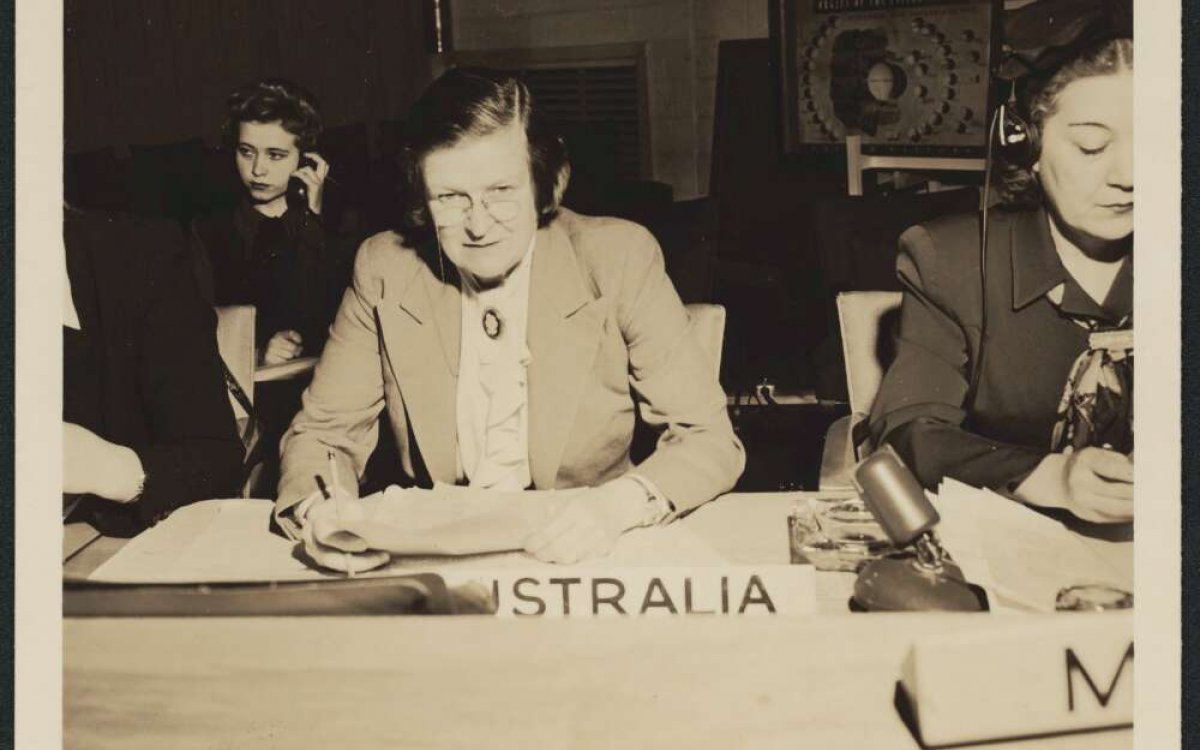
Street, Jessie, 1889-1970. Jessie Street representing Australia at the United Nations [picture]. http://nla.gov.au/nla.obj-231551090
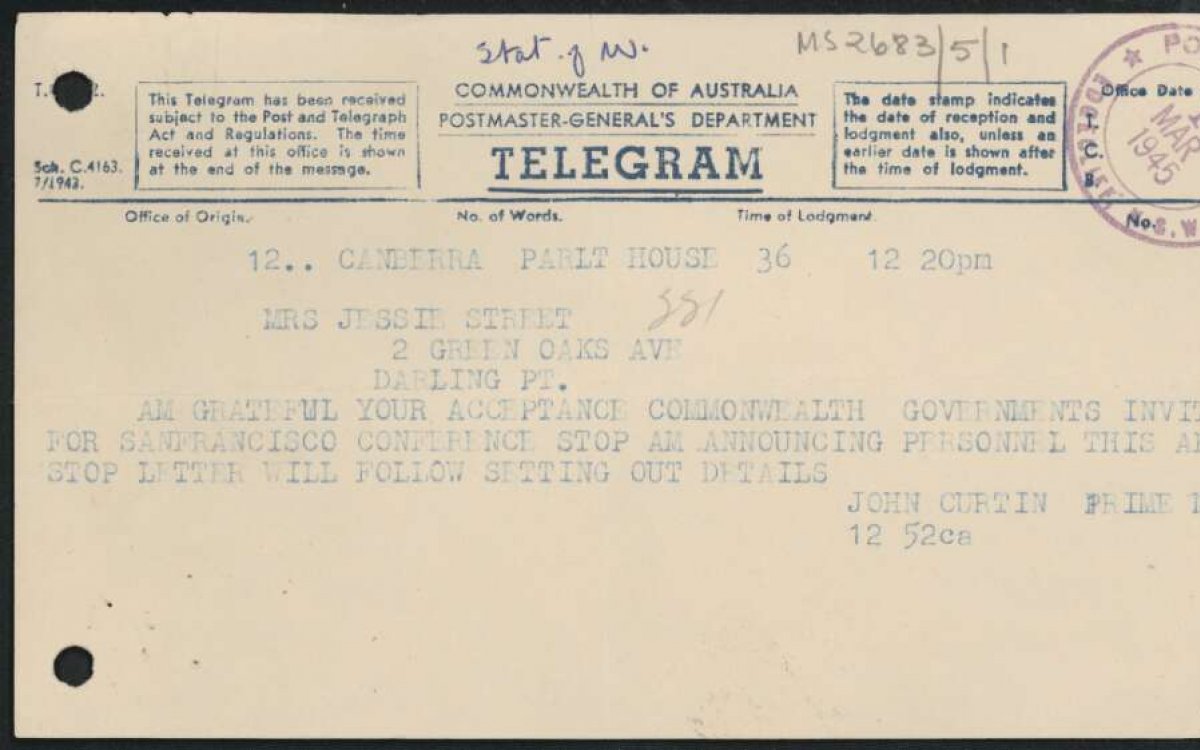
MS 2683-Papers of Jessie Street, circa 1914-1968 [manuscript]./Series 5/File 1/Telegram from Prime Minister John Curtin to Jessie Street, http://nla.gov.au/nla.obj-231547363
In 1943, Jessie Street was Australia’s most notable feminist. She is celebrated today for her work promoting female economic independence. Street had been witness to the restrictions and social constraints faced by women of her mother’s generation and, in her own experience, seeing her younger brother having more rights and opportunities than she did; this led Street to devoting her life to improving the status of and conditions for women.
Street held numerous volunteer leadership positions in many women’s organisations over her career, both in Australia and overseas. She used these platforms to lobby for change in many areas including the right to work regardless of marital status; equal pay; and the right for women to compete for traditionally male-oriented roles. She was also one of the first feminists to talk about family planning, contraception and sex education. She rallied to increase the number of Jewish refugees accepted to Australia, and was passionate about the rights of Indigenous Australians.
Street was chosen by Prime Minister John Curtin to represent Australia at the United Nations Conference on International Organization in 1945 in San Francisco. She and other women worked to have the word ‘sex’ inserted into Article 1 of the Charter of the United Nations, so that it read promoting and encouraging ‘respect for human rights and for fundamental freedoms for all without distinction as to race, sex, language, or religion;’
After leaving the conference in San Francisco, Street toured parts of Europe devastated by the Second World War and was a guest of the Soviet Union. The destruction to life and property that she witnessed led her to strive to eliminate war and support the countries affected by it. Despite never being a member of the Communist Party, Street gained the nickname ‘Red Jessie’ due to her continuing work and close ties with the Soviet Union. These ties brought her work under suspicion as tensions between the Soviet Union and western nations grew.
Listen to Jessie Street and her own recollections of being paid just 54% of a man’s pay, in factories during the war:
Later she outlines hopes for the future, where places of influence might be properly distributed between men and women:
Miles Franklin
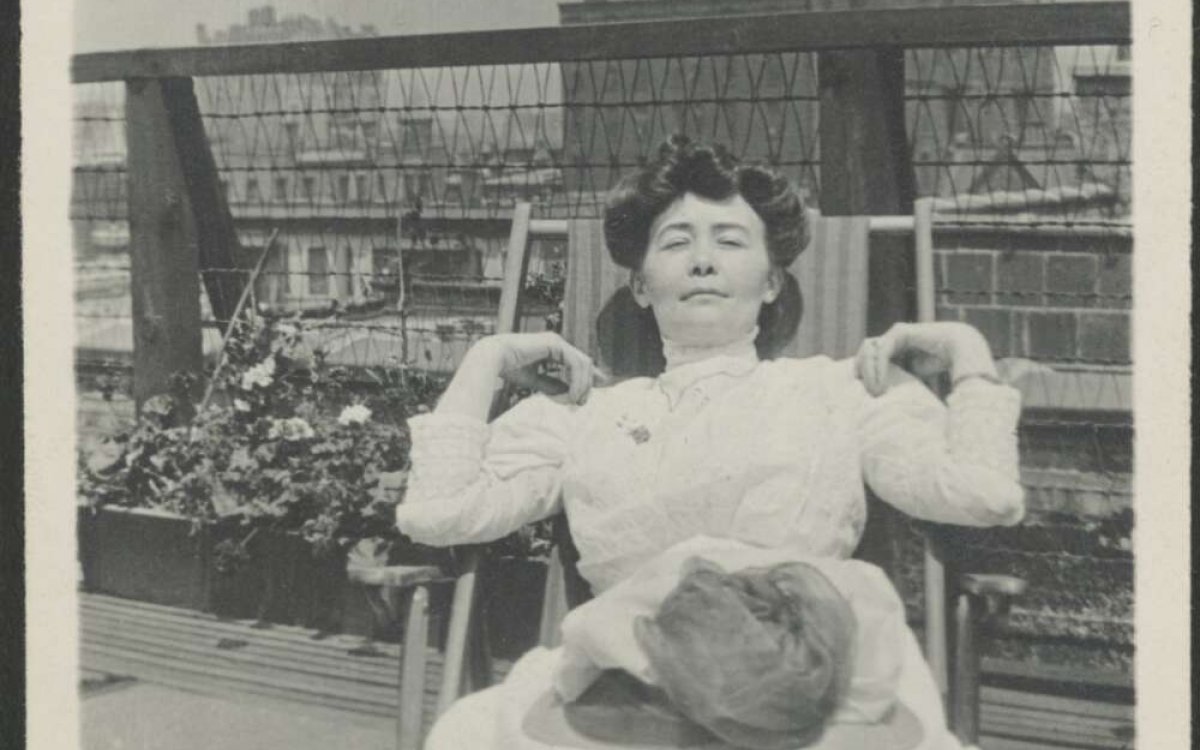
Franklin, Miles, 1879-1954. Stella Miles Franklin [picture]. http://nla.gov.au/nla.obj-229628581
You might think Miles Franklin is a man. In fact, Stella Maria Sarah Miles Franklin was a writer who used several male pseudonyms in an era in which women writers were not taken all that seriously. Submitting a manuscript to a publisher under a male name increased its chances of being published. Along with Henry Handel Richardson (also a woman who wrote under a pseudonym) and Christina Stead, Franklin challenged the status quo in the late nineteenth and early twentieth centuries by pursuing a writing career.
Miles Franklin was best known for her novels My Brilliant Career, All That Swagger and My Career Goes Bung. She worked overseas in both Britain and the United States, forming her writing style and sense of nationality from afar. She was good friends with Vida Goldstein and at one point was a secretary and editor for feminist groups. My Brilliant Career explored a woman’s right to a career and independence. Franklin herself never married; she pursued writing and other careers as she sought her own freedom. She founded the Miles Franklin Literary Award through a bequest in her will and such was her contribution to Australian literature that the Stella Prize (for Australian women writers) is named in her honour.
Listen as Dr Grace Blakeley-Carroll speaks about women writers, in particular Henry Handel Richardson, and the use of pseudonyms:
Later she explains why Miles Franklin in particular chose several pseudonyms:
Anne Summers
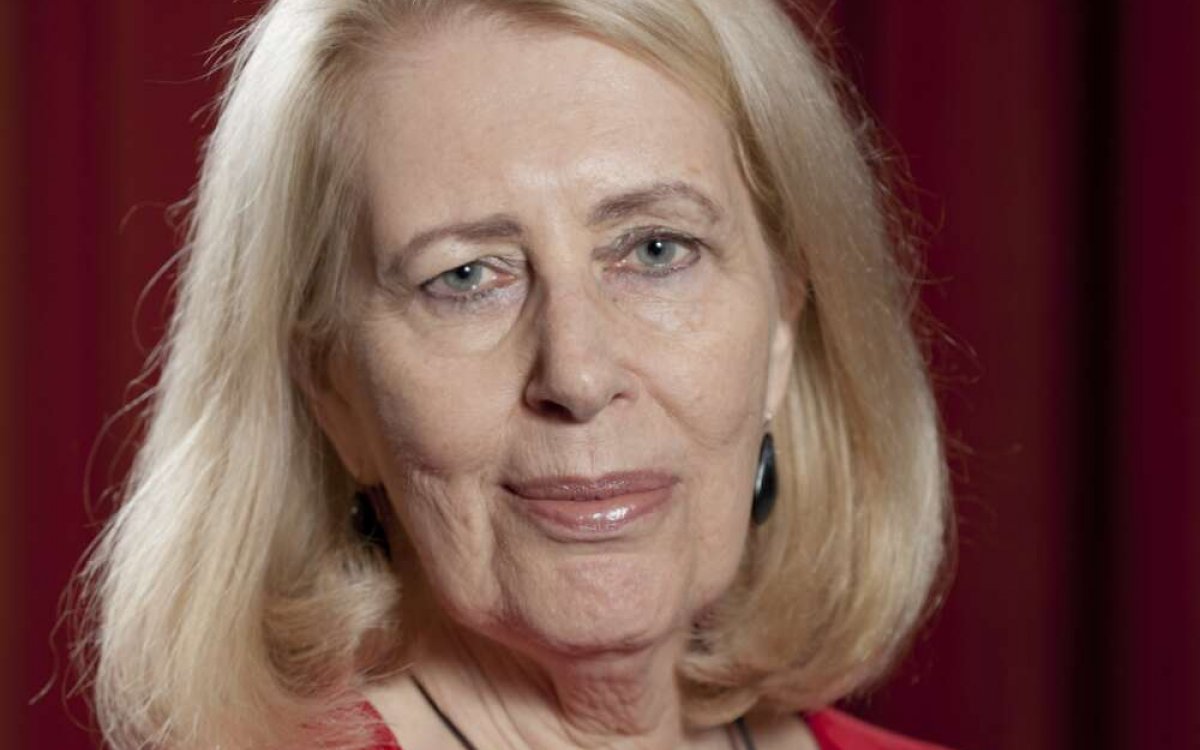
Mackenzie, Craig, 1969- & National Library of Australia. Portrait of Anne Summers at the National Library of Australia, 27 October 2013, 1 / Craig MacKenzie.http://nla.gov.au/nla.obj-132320638
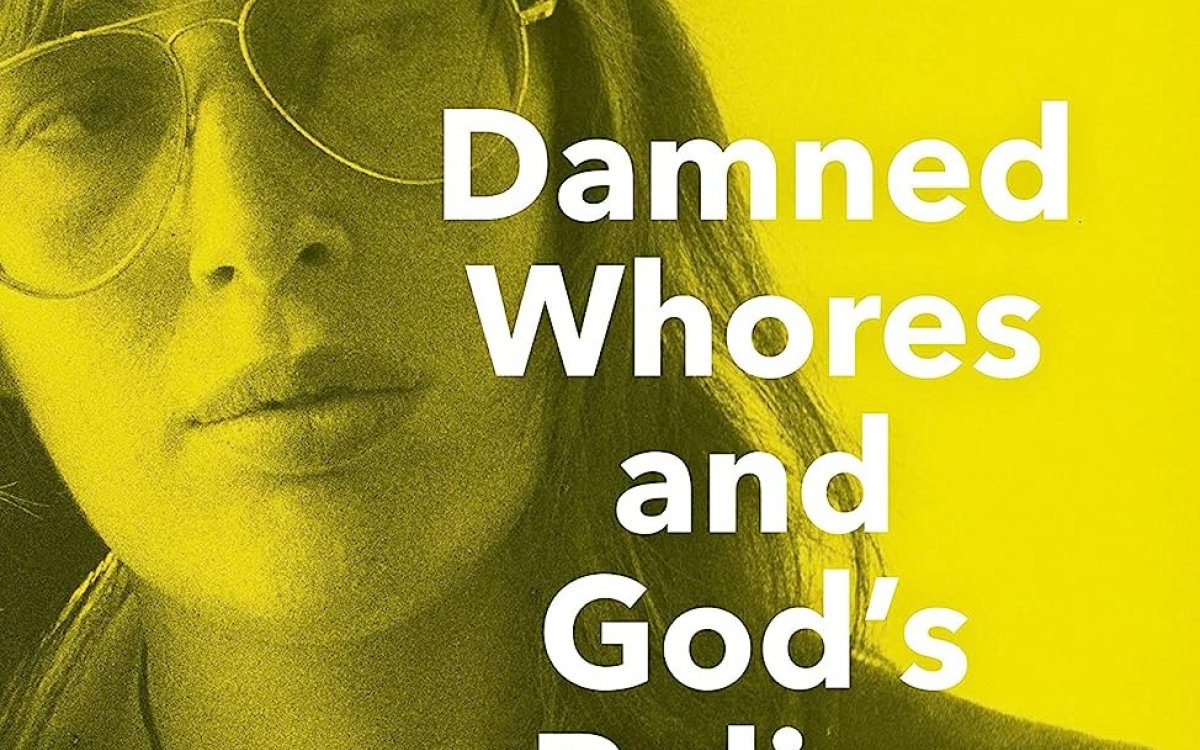
Summers, Anne, 1945-. (2016). Damned whores and God's police : the colonisation of women in Australia / Anne Summers. Sydney, NSW : NewSouth Publishing. https://nla.gov.au/nla.cat-vn6975728
Anne Summers is a notable author, journalist and feminist. She has had a long and distinguished career in politics and the media. Her first book, Damned Whores and God’s Police, was published in 1975 and was a seminal text in the rise of the feminist movement as women found themselves considering lifestyles and career outside the domestic roles previously reserved for them. In the 1980s, Summers purchased and became the editor of a feminist magazine in the United States, titled Ms., and later went on to become editor of Australian publications.
Summers wrote unashamedly about her own experiences as a woman in the twentieth century and her candour brought many issues into the public domain. She experienced domestic violence from an alcoholic father, chose to have an abortion, divorced early in a marriage and pursued a career as an independent woman. During the 1980s, she was head of the Office for the Status of Women and, later, was an adviser to Prime Minister Paul Keating. Her articulate and honest writing has given feminism a voice, a sense of urgency, and accountability.
Activities
- Listen to the recordings of Jessie Street above. What does she say about unequal pay? What did the women do to bring about change? Do you think the result was a success? Do you think that, in times of war, women should accept work at a lesser pay rate than that granted to men?
- Legislation passed in 1972 to make it illegal to pay a woman less than a man for doing the same job. Despite this, equal pay remains a contentious issue today as there still a gender pay gap. Write a letter to Jessie Street thanking her for her work preceding this legislation and informing her of the changes that have occurred since.
- Look at socialism and consider how this movement benefits the goals of feminism and women’s rights. Do you think that, if fully enacted, socialism would generate gender equality? Why or why not?
- How many women writers can you find who have relied upon a male pseudonym to get published? Has this tradition continued into the twenty-first century? Do you think that women writers are taken as seriously as male writers today? What gender biases are there in how people perceive the quality of literature written by or about men or women?
